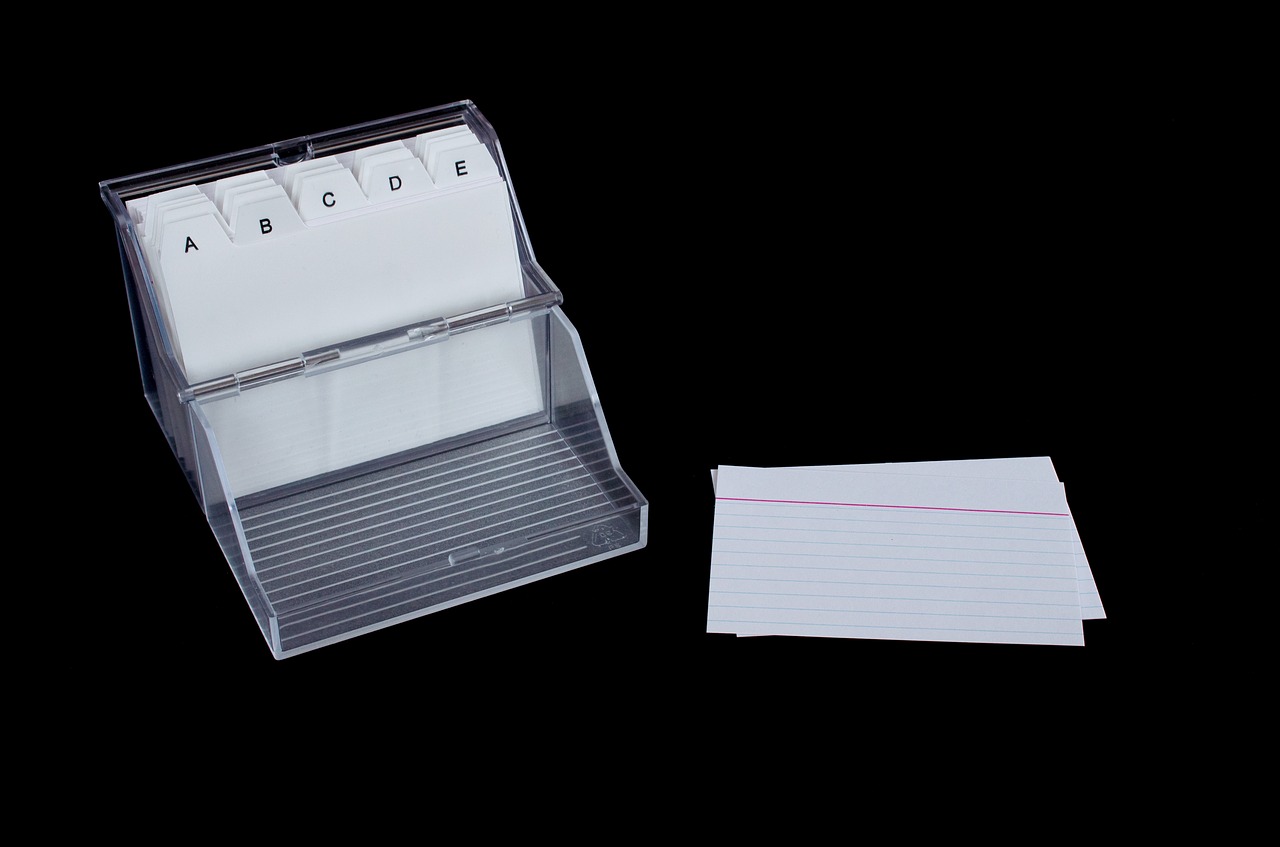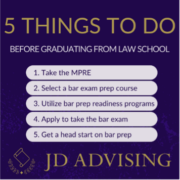A Baker’s Dozen Useful Bar Exam Mnemonics
A Baker’s Dozen Useful Bar Exam Mnemonics
A Baker’s Dozen Useful Bar Exam Mnemonics: The amount of information that needs to be memorized for the bar exam can be overwhelming! You might be wondering how you can possibly remember all of it. Mnemonics can be a useful tool to help with memorization! A mnemonic is a device that is such as pattern of letters that can help you remember something with a lot of components. Coming up with your own mnemonics for bar exam material is useful because the words or phrases you invent are likely to be more meaningful for you.
But for those who are looking for some ready-made mnemonics, this post is for you! We’ve created a list of some of the most useful bar exam mnemonics – some might be more common while others are more unique or cover less well-known information. Memorizing these bar exam mnemonics will certainly help with your studying and aid in your recall of this information on exam day!
A Baker’s Dozen Useful Bar Exam Mnemonics
1. Bar Exam Mnemonics for Joint Tenancy: TTIP and G-SAM
The requirements to create a joint tenancy can be remembered by the bar exam mnemonic TTIP, which stands for Time, Title, Interest, and Possession. For a joint tenancy to be formed, the interests must have vested at the same Time, the same instrument must have granted Title, all must possess an equal share of the property (the same Interest), and all tenants must have identical rights to Possess the property.
The ways to sever a joint tenancy can be remembered with the bar exam mnemonic G-SAM. The four ways to sever a joint tenancy are to Give it away during life (conveyance), to Sign a contract for sale, an Actual foreclosure/judicial sale by a judgment lien creditor, and to execute a Mortgage in a title theory state.
2. Bar Exam Mnemonics for Real Covenants: PINT and TIN
To remember what is needed for a real covenant to bind successors, you can use the bar exam mnemonic PINT. We need Privity between the parties (for the burden to run, we need both horizontal and vertical privity – for the benefit to run, we need just vertical privity), Intent for the covenant to bind future successors, Notice to the person the covenant is being enforced against, and the condition must Touch and concern the land. Furthermore, for an equitable servitude to bind successors, we only need TIN, which is everything required for a real covenant except for privity (Touch and concern, Intent, and Notice).
3. Bar Exam Mnemonic for Adverse Possession: CHANGE
In order to gain title to land by adverse possession, the following requirements must be met (CHANGE): the use must be Continuous (like a true owner would use it), Hostile (without permission, also known as adverse), Actual (you only gain rights to the land you are in actual possession of), Notorious (also known as open and notorious, must be visible), Goes on for the statutory period (20 years on the MBE), and Exclusive (without the true owner or the public).
4. Bar Exam Mnemonic for the Exceptions to Revoking an Offer: FOUR
An offer can generally be revoked before it is accepted unless an exception applies. The bar exam mnemonic FOUR can be used to remember the exceptions to the general rule. (And, conveniently, there are also four exceptions). In the following situations an offer cannot be revoked: a Firm offer under Article 2 of the UCC, an Option contract, when performance has begun on a Unilateral contract, and when there has been Reasonably foreseeable substantial reliance on the offer.
5. Bar Exam Mnemonic for Pre-Existing Legal Duty Rule Exceptions: CLUSTER
The general rule is that the performance of a pre-existing legal duty cannot be consideration to form a valid contract. The exceptions to this rule can be remembered by the bar exam mnemonic CLUSTER: Changing the duty on one side, Lawsuit settlement or release (there is consideration for the settlement of a valid claim, or a claim for which there is a good faith belief for validity), Unforeseen difficulties (impracticability), Sale of goods under the UCC, Time-barred debt (written promise to pay a debt barred by the statute of limitations), Extra person involved, and Release of pre-existing debts.
6. Bar Exam Mnemonic for the Political Question Doctrine: SCREAM
When considering whether a federal court has the ability to hear a claim, the general rule is that federal courts cannot decide political questions. Examples of political questions can be remembered by the bar exam mnemonic SCREAM: Seating of delegates at a national political convention, Challenges to impeachment and removal procedures, Republican form of government clause issues; Election and qualifications of Congress, procedures to Amend the Constitution, and Military or foreign affairs decisions by the President.
7. Bar Exam Mnemonic for Fundamental Privacy Rights: MOPPS
Laws implicating fundamental rights will be analyzed under strict scrutiny. One category of fundamental rights is privacy rights. The various privacy rights that fall under this category can be remembered by the bar exam mnemonic MOPPS: Marriage, Obscenity in the home (this does not extend to child porn, and there is no right to buy, sell, or transport obscene material), Parental and family rights, Procreation and contraception, and Sexual relations.
8. Bar Exam Mnemonic for Strict Products Liability: PDF
If you see an injury caused by a product, one of the possible causes of action is strict products liability. The elements for strict products liability can be remembered by the bar exam mnemonic PDF: Proper parties (we need a proper plaintiff and a proper defendant), a product that is Defective from the time it left the manufacturer’s hands, and the plaintiff has made a Foreseeable use of the product at the time of the injury.
9. Bar Exam Mnemonics for Class Actions: CANT(S)
In order to file a valid class action suit, the plaintiff must establish numerous prerequisites. These prerequisites can be remembered by the bar exam mnemonic CANT(S): Commonality (common issues of fact or law and common injuries), Adequacy (the named plaintiff and class counsel must fairly and adequately represent the class), Numerosity (the class is so numerous that joinder of all of them would be impracticable), Typicality (the claims of the named plaintiff are typical of the class), and Superiority (class action is superior to alternative methods of adjudication – this requirement is only needed in common question suits on the MBE, but some jurisdictions require it in any class action suit).
10. Bar Exam Mnemonics for Preliminary Injunctions: HELP
In deciding whether to grant a preliminary injunction, the court will consider four factors. These factors can be remembered by the bar exam mnemonic HELP: whether the party seeking the injunction would suffer irreparable Harm if the injunction were not granted, Evaluate the risk that the party seeking the injunction would be harmed more by the absence of an injunction than the opposing party would by granting injunctive relief, the Likelihood that the party seeking the injunction will prevail on the merits, and the harm to the Public interest if the injunction were to be issued.
11. Bar Exam Mnemonic for When a Declarant is Unavailable (SAILS)
Whether or not a declarant is unavailable is very important for determining issues of hearsay. To remember the situations in which a declarant would be deemed unavailable, use the bar exam mnemonic SAILS: Stating a claim for privilege, Absent from the jurisdiction, Ill or dead, Lacks memory, or Stubbornly refuses to testify.
12. Bar Exam Mnemonic for Using Prior Crimes or Bad Acts to Prove Something Else (MIMIC)
Evidence of a crime, wrong, or other act is not admissible as evidence of a person’s character to show that on a particular occasion the person acted in accordance with that character. However, these acts may be admissible for another purpose. These purposes can be remembered by the bar exam mnemonic MIMIC: Motive, Intent, Mistake (or lack thereof), Identity, or Common scheme or plan (including preparation).
13. Bar Exam Mnemonic for Limitations on the Exclusionary Rule (SICK)
Generally, evidence obtained in violation of the 4th Amendment is not admissible under the exclusionary rule. However, there are limitations on this rule for situations where the rule will not apply, even if there were violations. A good bar exam mnemonic for these situations is SICK: Standing (where the person who is trying to suppress the evidence does not have standing to challenge the search), Impeachment (evidence can still be used to impeach the defendant’s testimony), Civil and other proceedings (unconstitutionally obtained evidence can be used in other proceedings), Knock and announce rule (violations of this rule will not result in exclusion).
Looking to Pass the Bar Exam?
Free Resources:
- 🌟Bar Exam Free Resource Center: Access our most popular free guides, webinars, and resources to set you on the path to success.
- Free Bar Exam Guides: Expert advice on the MBE, the MEE, passing strategies, and overcoming failure.
- Free Webinars: Get insight from top bar exam experts to ace your preparation.
Paid Resources:
- 🏆One-Sheets: Our most popular product! Master the Bar Exam with these five-star rated essentials.
- Bar Exam Outlines: Our comprehensive and condensed bar exam outlines present key information in an organized, easy-to-digest layout.
- Exclusive Mastery Classes: Dive deep into highly tested areas of the MBE, MEE, MPT, and CA bar exams in these live, one-time events.
- Specialized Private Tutoring: With years of experience under our belt, our experts provide personalized guidance to ensure you excel.
- Bar Exam Courses: On Demand and Premium options tailored to your needs.
- Bar Exam Crash Course + Mini Outlines: A great review of the topics you need to know!
🔥 NEW! Check out our Repeat Taker Bar Exam Course and our new premier Guarantee Pass Program!





Leave a Reply
Want to join the discussion?Feel free to contribute!